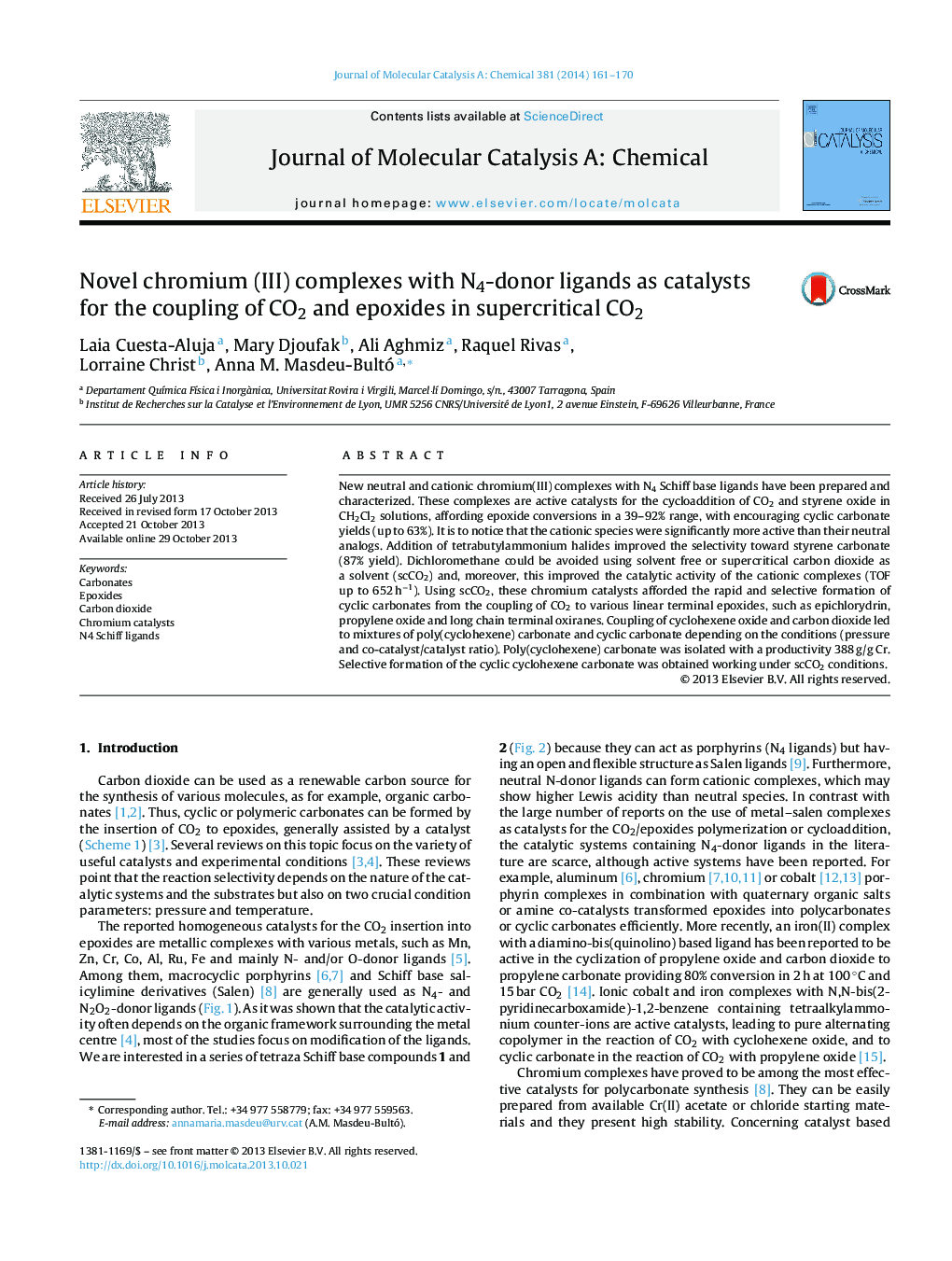| Article ID | Journal | Published Year | Pages | File Type |
|---|---|---|---|---|
| 65481 | Journal of Molecular Catalysis A: Chemical | 2014 | 10 Pages |
•New neutral and cationic Cr(III) complexes with N4-donor ligands were prepared.•They catalyze the cycloaddtion of CO2/styrene oxide in supercritical carbon dioxide.•With cationic catalyst cyclic styrene carbonate was obtained in TOF 652 h−1.•Reaction with linear terminal epoxides was selective to the cyclic carbonates.•Cyclohexene oxide and CO2 led to mixtures of poly(carbonate) and cyclic carbonate.
New neutral and cationic chromium(III) complexes with N4 Schiff base ligands have been prepared and characterized. These complexes are active catalysts for the cycloaddition of CO2 and styrene oxide in CH2Cl2 solutions, affording epoxide conversions in a 39–92% range, with encouraging cyclic carbonate yields (up to 63%). It is to notice that the cationic species were significantly more active than their neutral analogs. Addition of tetrabutylammonium halides improved the selectivity toward styrene carbonate (87% yield). Dichloromethane could be avoided using solvent free or supercritical carbon dioxide as a solvent (scCO2) and, moreover, this improved the catalytic activity of the cationic complexes (TOF up to 652 h−1). Using scCO2, these chromium catalysts afforded the rapid and selective formation of cyclic carbonates from the coupling of CO2 to various linear terminal epoxides, such as epichlorydrin, propylene oxide and long chain terminal oxiranes. Coupling of cyclohexene oxide and carbon dioxide led to mixtures of poly(cyclohexene) carbonate and cyclic carbonate depending on the conditions (pressure and co-catalyst/catalyst ratio). Poly(cyclohexene) carbonate was isolated with a productivity 388 g/g Cr. Selective formation of the cyclic cyclohexene carbonate was obtained working under scCO2 conditions.
Graphical abstractFigure optionsDownload full-size imageDownload high-quality image (102 K)Download as PowerPoint slide
